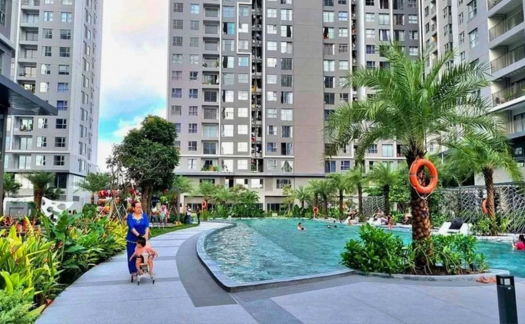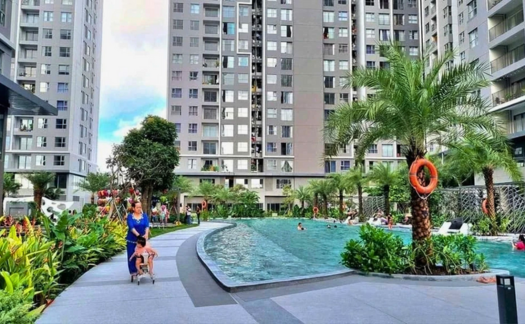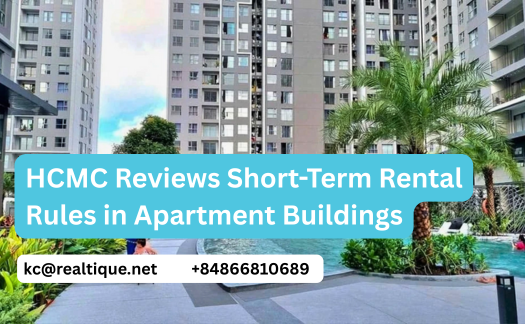HCMC Reviews Short-Term Rental Rules in Apartment Buildings
HCMC is seeking public input on short-term rental policies in condominiums, aiming to balance residential safety with tourism and economic development.

Table of Contents
City Seeks Feedback on Short-Term Rentals in Apartments
The Ho Chi Minh City Department of Construction has issued a call for feedback on the operation of short-term rental models within apartment buildings. This request follows ongoing debates about how best to manage the rising popularity of short-stay services like Airbnb, while ensuring compliance with the newly enacted Housing Law 2023.
In a document sent to the Department of Tourism, the Ho Chi Minh City Real Estate Association, and other stakeholders, the Construction Department emphasized the need to review and assess the legal and social impacts of short-term rentals in multi-family residential projects.
According to the Housing Law 2023, using apartments for purposes other than residential living—such as short-term tourism accommodation—is strictly prohibited. Additionally, Circular 05 from the Ministry of Construction permits short-stay operations only in mixed-use developments or buildings officially designated for tourism lodging.
Balancing Regulation and Economic Potential
To build a regulatory framework that aligns with current conditions and development goals, the Department of Construction is now collecting feedback from tourism and real estate stakeholders. These insights will form the basis for proposals submitted to the People’s Committee of Ho Chi Minh City, potentially guiding a future model for managing short-stay operations within apartment buildings.
This initiative follows Decision 26 issued on February 27, which officially bans the use of condominiums for short-term lodging by the hour or day. While this decision has been welcomed by many permanent residents who value security and peace, it has also stirred frustration among property owners who rely on rental income from tourism.
Some experts argue that instead of an outright ban, the city should leverage Resolution 98—an experimental framework for special administrative and economic mechanisms—to pilot regulated short-term rentals. A clearly defined model, they suggest, could strike a balance between fostering tourism and protecting residential living standards.
Nearly 10,000 Units Active in Short-Term Leasing

A recent VnExpress survey of 15 apartment developments across the city revealed approximately 10,000 units currently operating as short-term rentals. In some complexes, as many as 3,600 units are being marketed on platforms like Airbnb. These properties generate significant monthly revenue for homeowners—ranging from 15 to 60 million VND per unit.
Such economic activity represents a valuable opportunity for local tourism growth and tax revenue generation, experts say. If managed well, this model could be integrated into Ho Chi Minh City’s broader tourism strategy, helping to diversify lodging options for domestic and international visitors alike.
Ready to invest smartly in Vietnam’s real estate market?
📩 Reach out to Realtique for insider insights, expert guidance, and exclusive property deals tailored for international investors.








